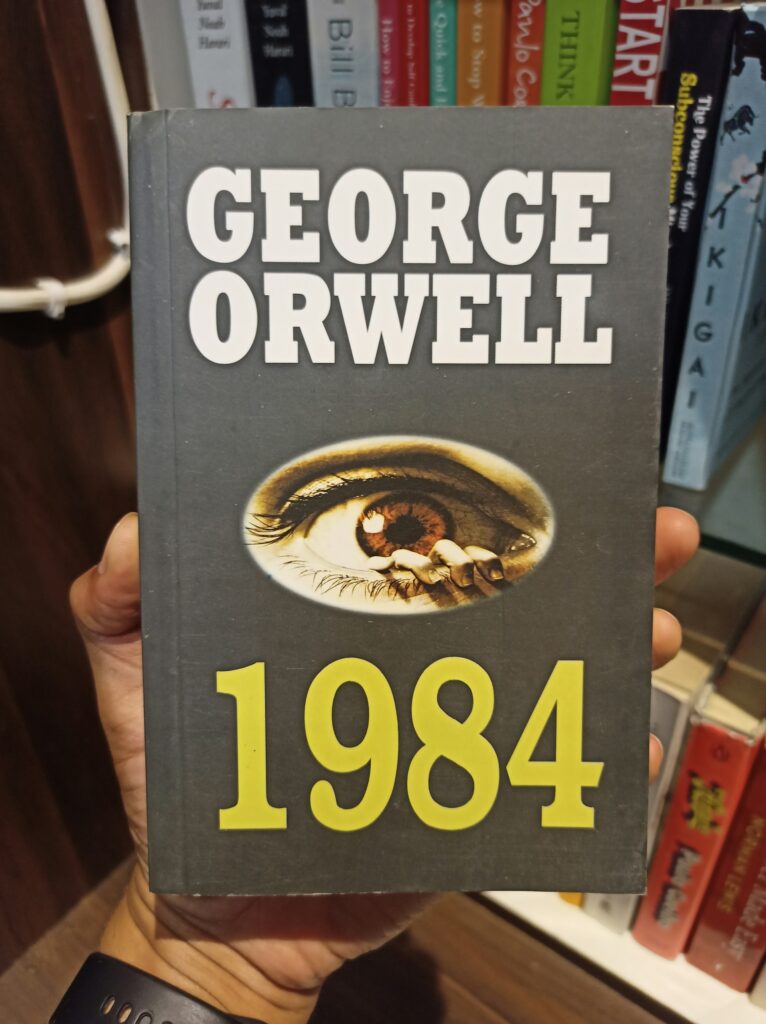In today’s fast-paced digital world, classic literature often seems relegated to the dusty shelves of forgotten libraries. Yet, these age-old texts hold untold treasures, offering insights and wisdom that remain profoundly relevant in our modern life. This article endeavors to bridge the gap between the ancient and the contemporary, guiding modern readers to discover and appreciate the timeless allure of classic literature.
The importance of classic literature extends beyond mere academic pursuit; it is a journey into the very heart of human emotion and experience. Classics provide a window into different eras and cultures, allowing us to explore diverse perspectives and understandings of life. They challenge us, comfort us, and most importantly, connect us across time and space. This might also be a good escape when you’re digital detoxing.
Understanding Classic Literature
Classic literature is a term that encompasses a vast array of written works that have transcended time and cultural boundaries. These are the books, plays, and poems that have not only survived the test of time but have thrived, continuing to engage and inspire readers generations after they were first written. They are characterized by their groundbreaking themes, artistic merit, and universal appeal, often touching on the core aspects of human nature and society.
The beauty of classic literature lies in its ability to speak to fundamental human experiences—love, loss, conflict, and triumph. These works are often rich in language, style, and narrative complexity, offering deep insights into the human psyche and societal norms of their times. They serve as cultural artifacts that provide a deeper understanding of historical contexts and human evolution. The enduring relevance of these stories is a testament to their profound impact and the timeless nature of their themes.
Why Read Classic Literature?
Classic literature is not just about stories from the past; it’s about stories that have shaped our present. These works have significantly influenced art, culture, philosophy, and even the course of history. By reading these texts, one gains a deeper appreciation of how historical events and cultural movements have shaped contemporary society. Furthermore, classic literature often serves as a mirror, reflecting the societal norms and values of different eras, thus offering invaluable insights into the human condition.
The themes explored in classic literature are as relevant today as they were when they were first written. From the complexities of human nature to the struggles of societal constraints, these stories delve into issues that resonate across generations. Whether it’s the exploration of love in Jane Austen’s novels or the moral dilemmas presented in Dostoevsky’s works, these books offer timeless wisdom and lessons that continue to be applicable in today’s world. They challenge readers to think critically about their own lives and the society in which they live.
Challenges in Reading Classic Literature
One of the primary challenges modern readers face with classic literature is the language and style used in these works. Often written in archaic or complex language, these texts can seem daunting and inaccessible. The stylistic differences, including long sentences and unfamiliar vocabulary, can make these books appear impenetrable and distant. This barrier often discourages readers from exploring the rich narratives and profound messages contained within.
In an age dominated by technology and immediate gratification, classic literature can seem irrelevant or outdated to many. The historical and cultural contexts in which these works were written can feel alien and disconnected from the present day. This perception of irrelevance is a significant hurdle in attracting modern readers to these timeless works. However, by understanding the universality of the themes and emotions depicted in classic literature, readers can find personal and contemporary relevance in these age-old stories.
Accessible Starting Points
To overcome the language barrier, readers can turn to modern translations and simplified editions of classic works. These versions retain the essence of the original texts while making the language more accessible to contemporary readers. Simplified editions often provide annotations and explanations that help in understanding the historical context and literary nuances. This approach can serve as a gentle introduction, easing readers into the more complex language and style of traditional versions.
Audio books and dramatizations offer an alternative and engaging way to experience classic literature. Listening to a story being narrated can bring the characters and settings to life in a vivid and immersive manner. Dramatizations, particularly those with a full cast and sound effects, can transform a text into an enthralling auditory experience, making the language and story more approachable and enjoyable. These formats can be particularly appealing to those who find reading challenging or time-consuming.
Recommended Classics for Beginners
For beginners, choosing the right classic novels can make a significant difference in their reading experience. Novels like “Pride and Prejudice” by Jane Austen, with its witty narrative and relatable characters, or “To Kill a Mockingbird” by Harper Lee, known for its powerful themes and accessible language, are excellent starting points. These novels not only provide an enjoyable reading experience but also introduce fundamental literary themes and historical contexts in an engaging way.
Exploring classic poetry and plays can be a delightful experience for beginners. The rhythmic beauty of poetry, as seen in the works of Robert Frost, can provide a different perspective on language and expression. Similarly, the plays of William Shakespeare, especially in their modern adaptations, can be more accessible and entertaining. These forms of literature offer a unique blend of storytelling and artistic expression, making them ideal for those new to classic literature.
Integrating Classics with Modern Themes
The ability of classic literature to remain relevant over time is one of its most remarkable qualities. For instance, George Orwell’s “1984” explores themes of surveillance and government control, echoing contemporary concerns about privacy and freedom. Similarly, the exploration of human nature and societal pressures in novels like “The Great Gatsby” by F. Scott Fitzgerald resonates with modern audiences. These examples demonstrate the ongoing relevance of classic works in reflecting and influencing current societal issues.

Modern adaptations of classic literature can serve as a bridge between the old and the new, making these stories more relatable to contemporary audiences. Film adaptations, retellings in modern settings, or books that re-imagine classic stories from a different perspective can all provide fresh and accessible ways to engage with these works. These adaptations often highlight the universality of the themes and narratives, underscoring the idea that human experiences and emotions transcend time and culture.
Learning from the Classics
Classic literature often delves into complex moral and ethical questions, offering readers a chance to explore and reflect on their own values and beliefs. These works encourage critical thinking and empathy, as readers navigate the moral dilemmas and choices faced by characters. From the tragic consequences of flawed decisions in Shakespeare’s tragedies to the exploration of justice and virtue in Plato’s dialogues, classic literature provides a rich ground for contemplating life’s big questions.
Understanding the historical and social context in which classic literature was written can greatly enhance the reading experience. It allows readers to appreciate the nuances of the narrative and the author’s intent. This context provides a lens through which to view the characters’ actions and societal norms, offering insights into the evolution of human thought and social structures. Engaging with these works within their historical framework can also draw parallels with contemporary issues, making them more relevant and insightful.
Engaging Younger Audiences
Introducing classic literature to younger audiences through education is vital in cultivating an appreciation for these works. Schools and educators can play a crucial role by selecting texts that are age-appropriate and relatable for students. Creative teaching methods, such as group discussions, creative projects, and interactive lessons, can make these texts more engaging and meaningful. By exposing young readers to the beauty and depth of classic literature, we can instill a lifelong love for reading and learning.
In today’s digital age, technology and interactive media offer innovative ways to engage younger audiences with classic literature. Interactive eBooks, educational apps, and online platforms can bring these texts to life through animations, interactive annotations, and multimedia content. Online forums and social media groups provide spaces for young readers to discuss and explore these works with peers from around the world. Leveraging technology can make classic literature more accessible and appealing to the tech-savvy younger generation.
The Role of Media and Technology
The adaptation of classic literature into film and television has played a significant role in its revival among modern audiences. These adaptations provide a visual and dynamic representation of the stories, making them more approachable and engaging. Films and TV series often take creative liberties, updating the setting or characters, which can spark interest in the original works. The success of these adaptations in popular culture demonstrates the timeless appeal of these stories and their ability to resonate with contemporary viewers.
The internet has revolutionized the way we access and interact with classic literature. Online resources, such as digital libraries, study guides, and literary analysis websites, offer valuable tools for understanding and appreciating these works. Online communities and forums bring together enthusiasts and scholars from around the world, fostering discussions and shared learning experiences. These platforms provide a supportive environment for both new and seasoned readers to explore and enjoy classic literature in the digital age.
Discussion Clubs and Forums
Participating in discussion clubs and reading forums can greatly enhance the experience of reading classic literature. These groups provide a space for shared exploration and interpretation of texts, offering diverse perspectives and insights. Group discussions can help readers understand complex themes and historical contexts, making the reading experience more enriching and enjoyable. Moreover, these clubs foster a sense of community and belonging among readers who share a love for literature.
The proliferation of online and local book clubs has made it easier for readers to connect and engage with classic literature. Online forums offer the convenience of participating from anywhere, breaking geographical barriers. Local clubs, on the other hand, provide a more intimate setting for in-person discussions and social interactions. Both formats offer unique opportunities for readers to delve deeper into the world of classic literature, enriching their understanding and appreciation of these timeless works.
Preserving Classic Literature
The preservation of classic literature is crucial for ensuring that these cultural treasures are accessible to future generations. Organizations and institutions worldwide are engaged in conservation efforts, from digitizing ancient manuscripts to restoring and maintaining physical copies of rare books. These efforts not only safeguard the physical texts but also ensure their continued relevance and accessibility in a rapidly changing world.
Libraries and educational institutions play a pivotal role in the preservation and dissemination of classic literature. They serve as custodians of literary heritage, providing access to a vast collection of works and fostering a culture of reading and scholarship. These institutions also engage in educational initiatives, organizing events, workshops, and exhibitions to promote the appreciation and understanding of classic literature among diverse audiences.



